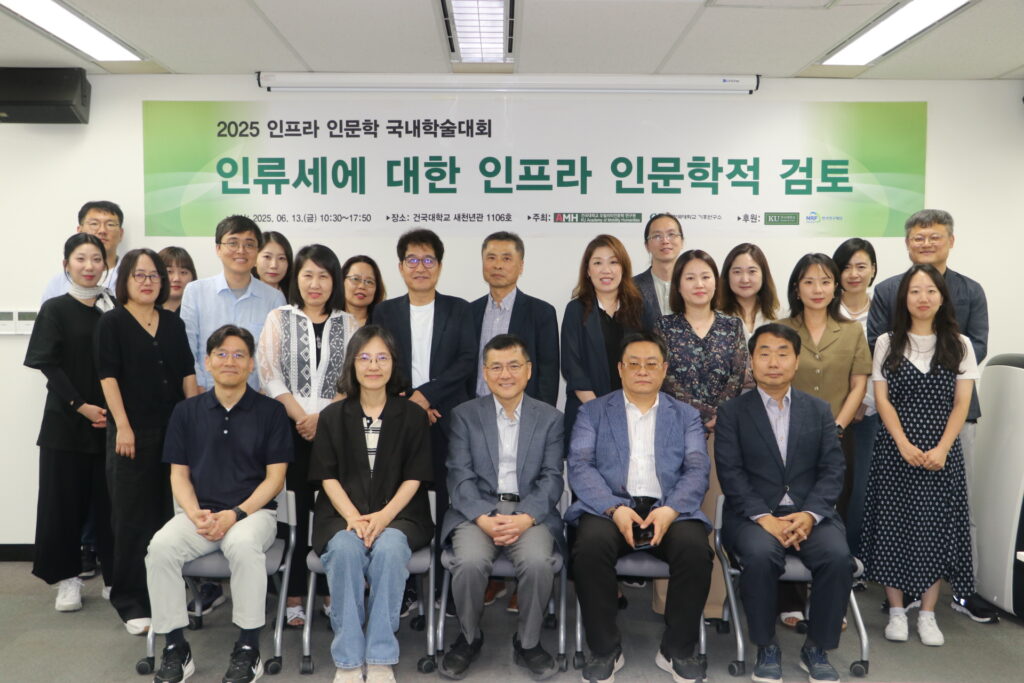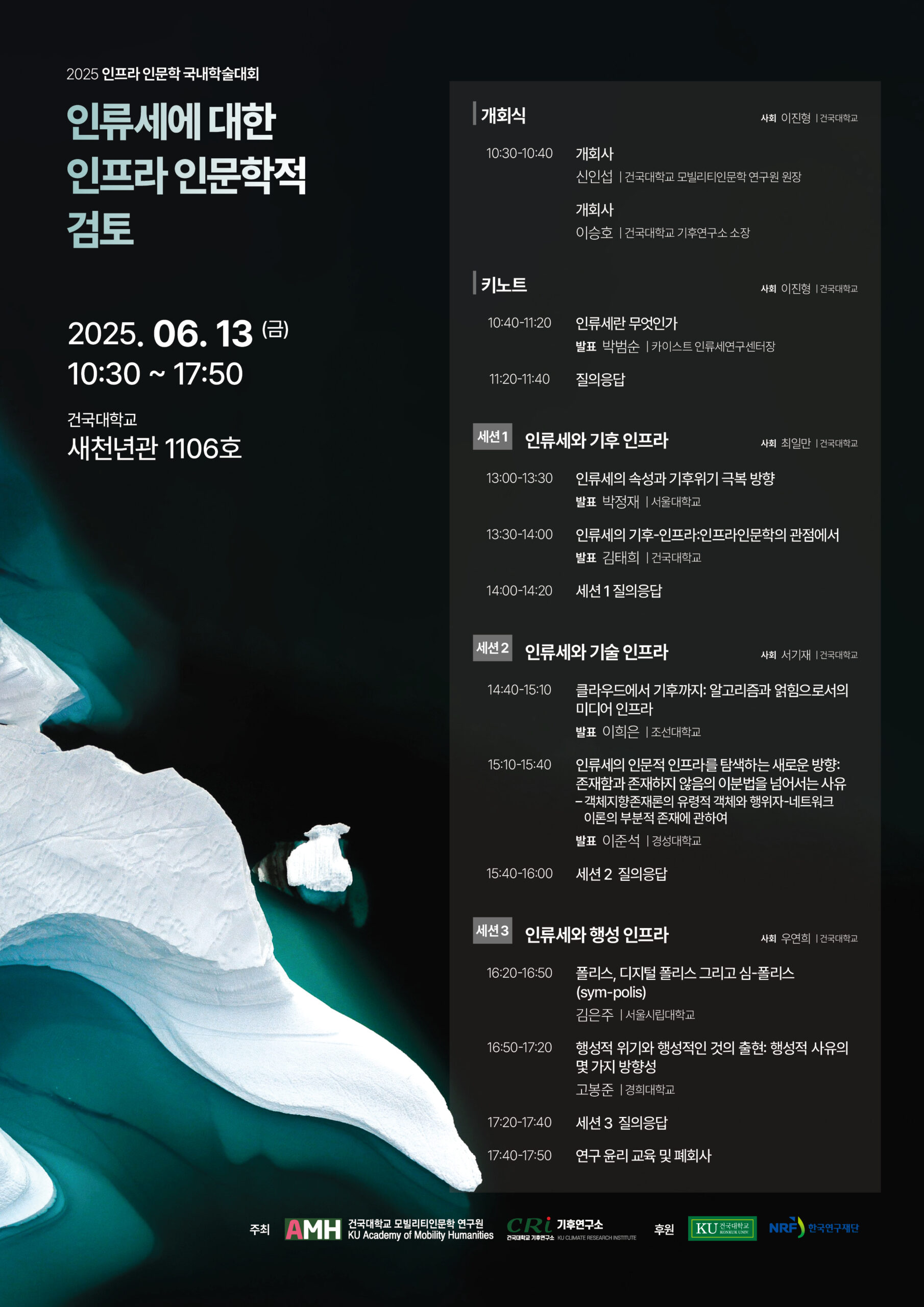This past March, the Academy of Mobility Humanities (AMH) at the Konkuk University officially launched a major new research initiative after “Infrastructure Humanities” was selected as a core research project in the Humanities Korea 3.0 (HK3.0) program, jointly organized by the Ministry of Education and the National Research Foundation of Korea. The recent academic conference, An Infrastructural Humanities Review of the Anthropocene, marks the first attempt to theoretically establish and interdisciplinarily expand the research agenda.
The event was planned as a response to the complex crises of our time, including climate change, technological disruption, and planetary transformation, by reflecting on infrastructure through the lens of the humanities. The conference was composed of a keynote lecture and three sessions under the themes: “The Anthropocene and Climate Infrastructure,” “The Anthropocene and Technological Infrastructure,” and “The Anthropocene and Planetary Infrastructure.”
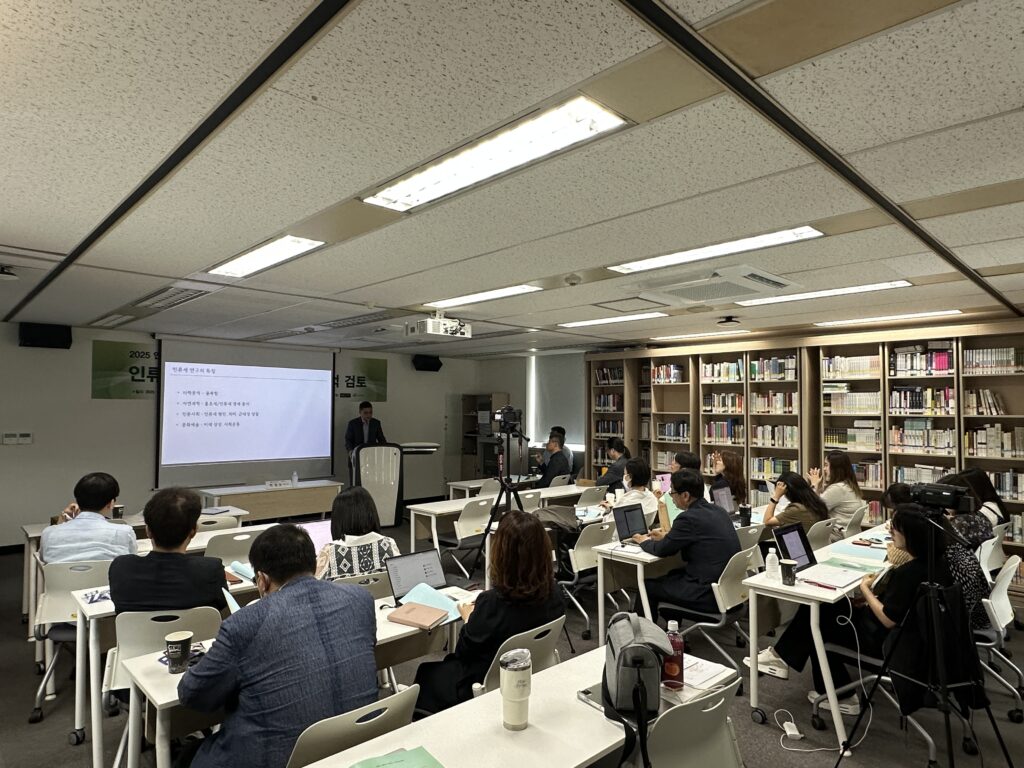
The keynote address was delivered by Professor Beomsoon Park (KAIST), who presented a comprehensive overview of the scientific definitions and socio-cultural implications of the Anthropocene. Professor Park restructured the concept of the Anthropocene as a multidisciplinary framework grounded in three core ideas: irreversibility, habitability, and reflexivity.
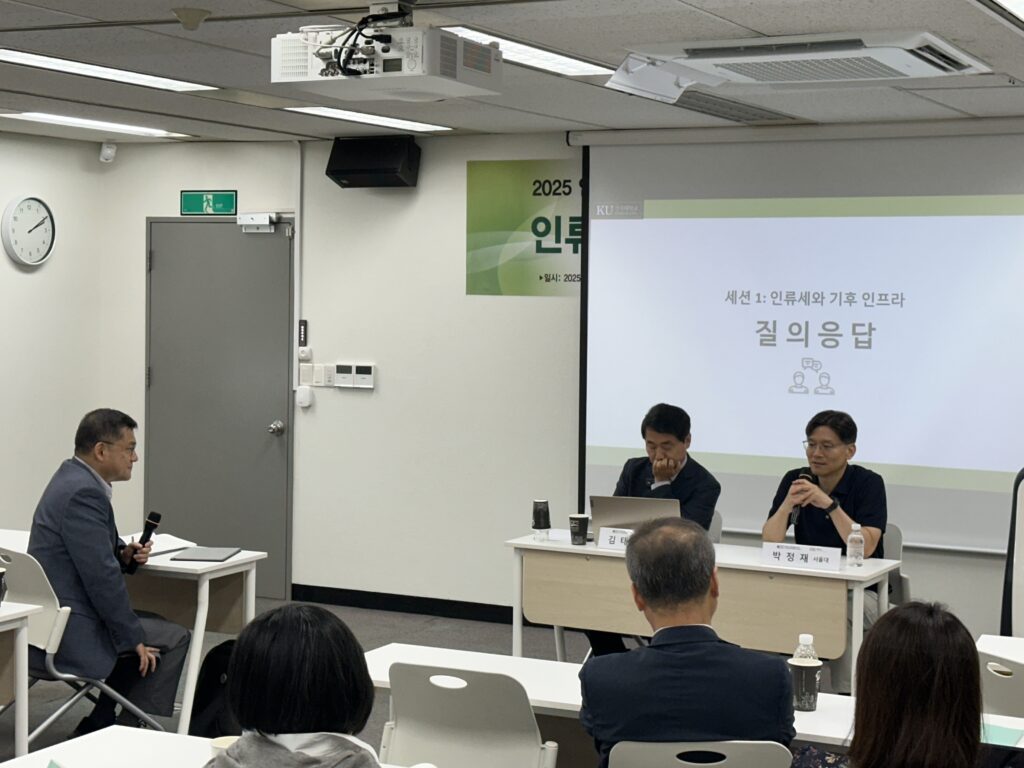
In Session 1, “The Anthropocene and Climate Infrastructure,” Professor Jeongjae Park (Seoul National University) and Professor Taehee Kim (Konkuk University) gave presentations. Professor Park emphasized the importance of Earth system thinking and a critical posthumanist approach to tackling the climate crisis of the Anthropocene era. Professor Kim, meanwhile, framed the climate crisis as a problem of “climate-infrastructure,” in which temporality and ontology are layered, and called for expanding this into a new analytical framework through the perspective of infrastructure humanities.
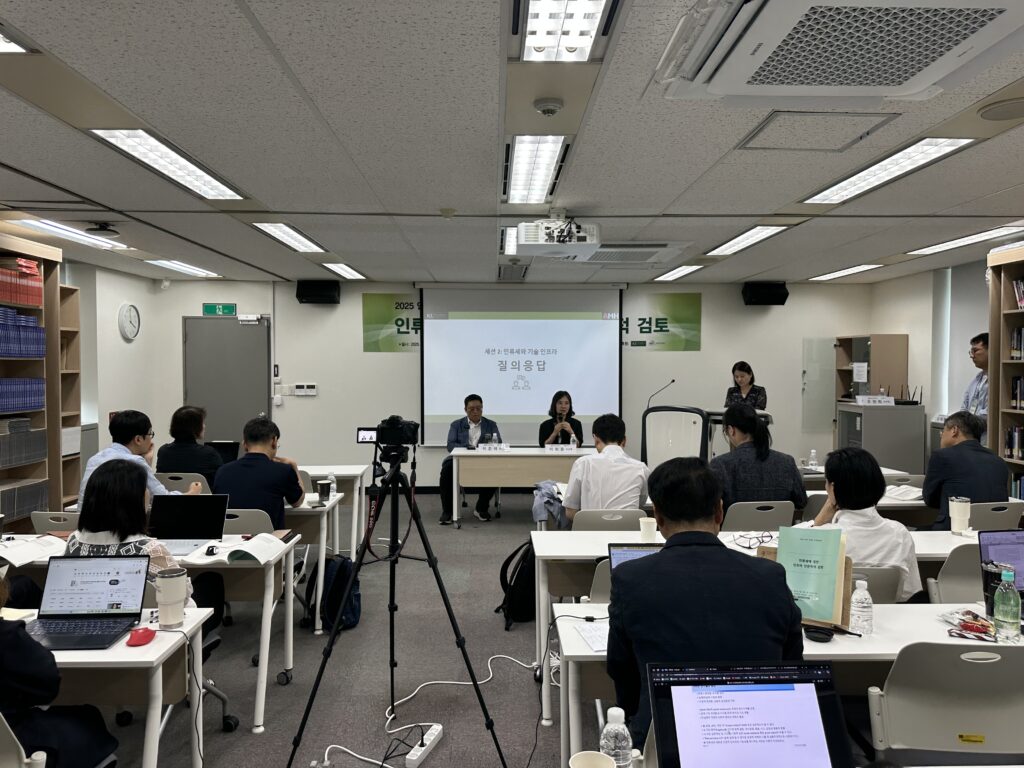
Session 2, “The Anthropocene and Technological Infrastructure,” featured presentations by Professor Heeeun Lee (Chosun University) and Professor Junseok Lee (Kyungsung University). Professor Lee redefined media infrastructures, entangled with climate, energy, and the cloud, as both ontological conditions and sensory infrastructures. She argued for an ethical reconfiguration of the information society in the intertwinement of technology, nature, humans and non-humans. Professor Lee also explored the agency of invisible entities based on object-oriented ontology and actor-network theory, while investigating the potential of a relational ontology that dismantles the dichotomy between being and non-being.
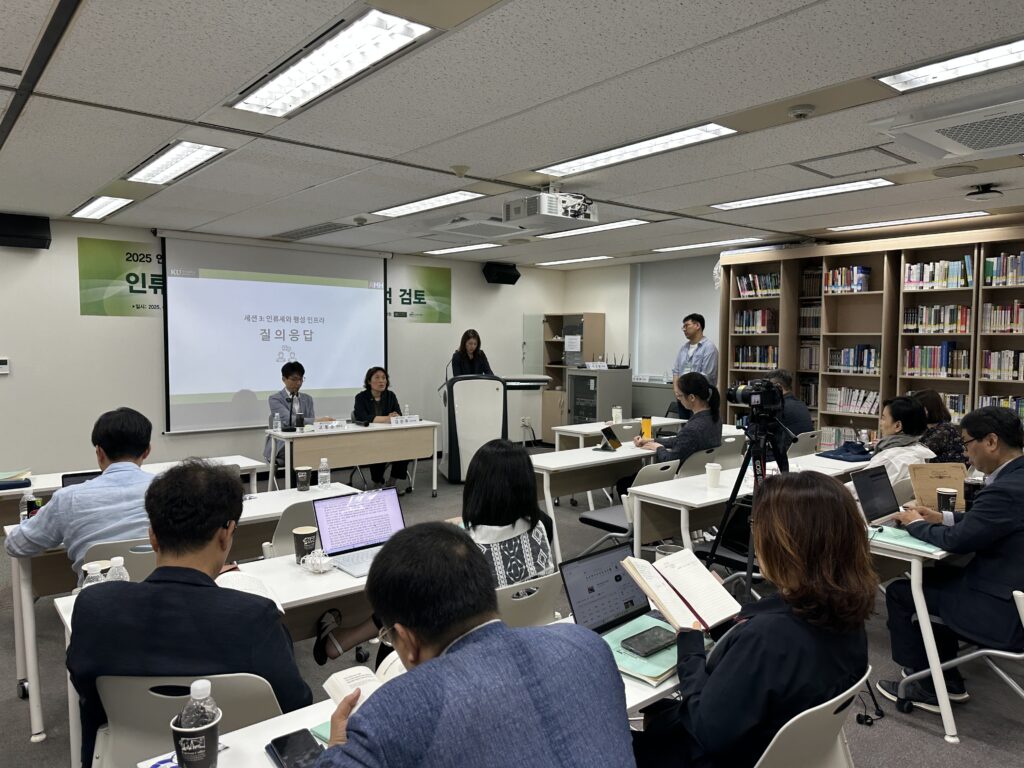
In Session 3, “The Anthropocene and Planetary Infrastructure,” Professor Eunju Kim (University of Seoul) and Professor Bongjun Ko (Kyung Hee University) presented their work. Professor Kim proposed the need to imagine new planetary political spaces in AI-based societies through the concepts of the digital polis and sim-polis. Professor Ko, meanwhile, introduced the ethics of multispecies coexistence and life-centered habitability as key concepts for thinking beyond the Anthropocene. He stressed the importance of humanistic imagination and ethical sensitivity during this planetary transition.
